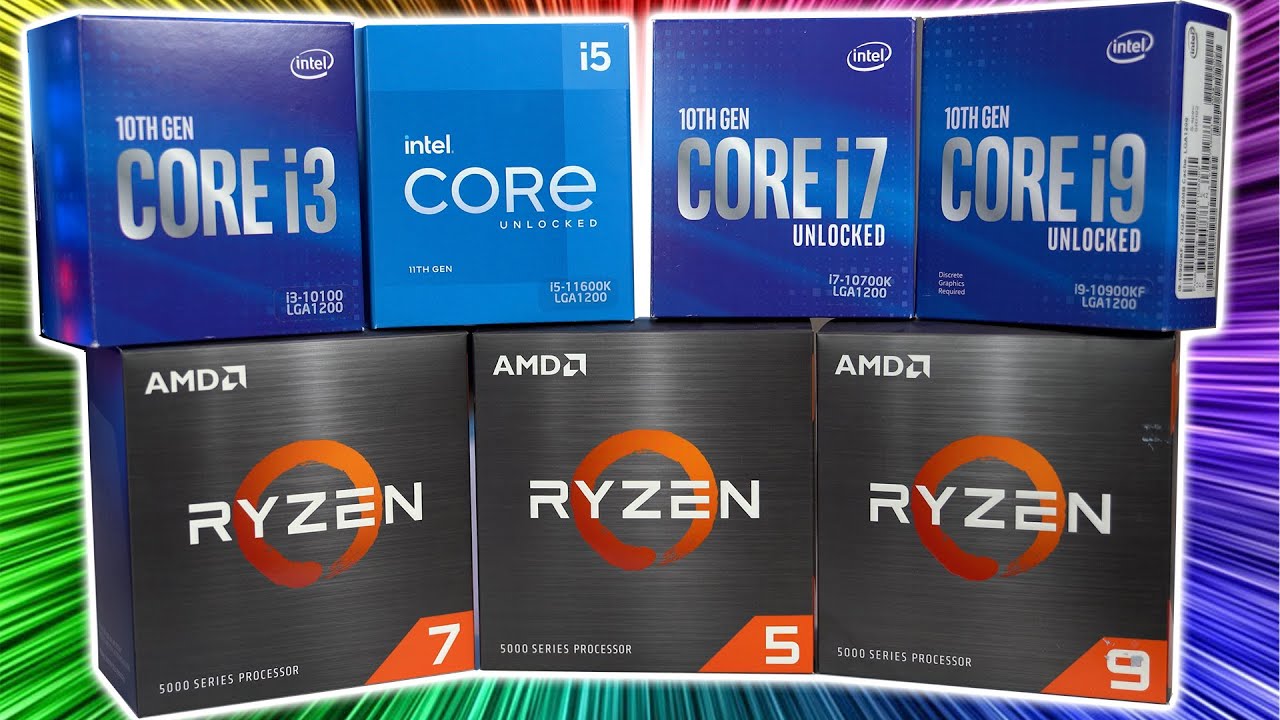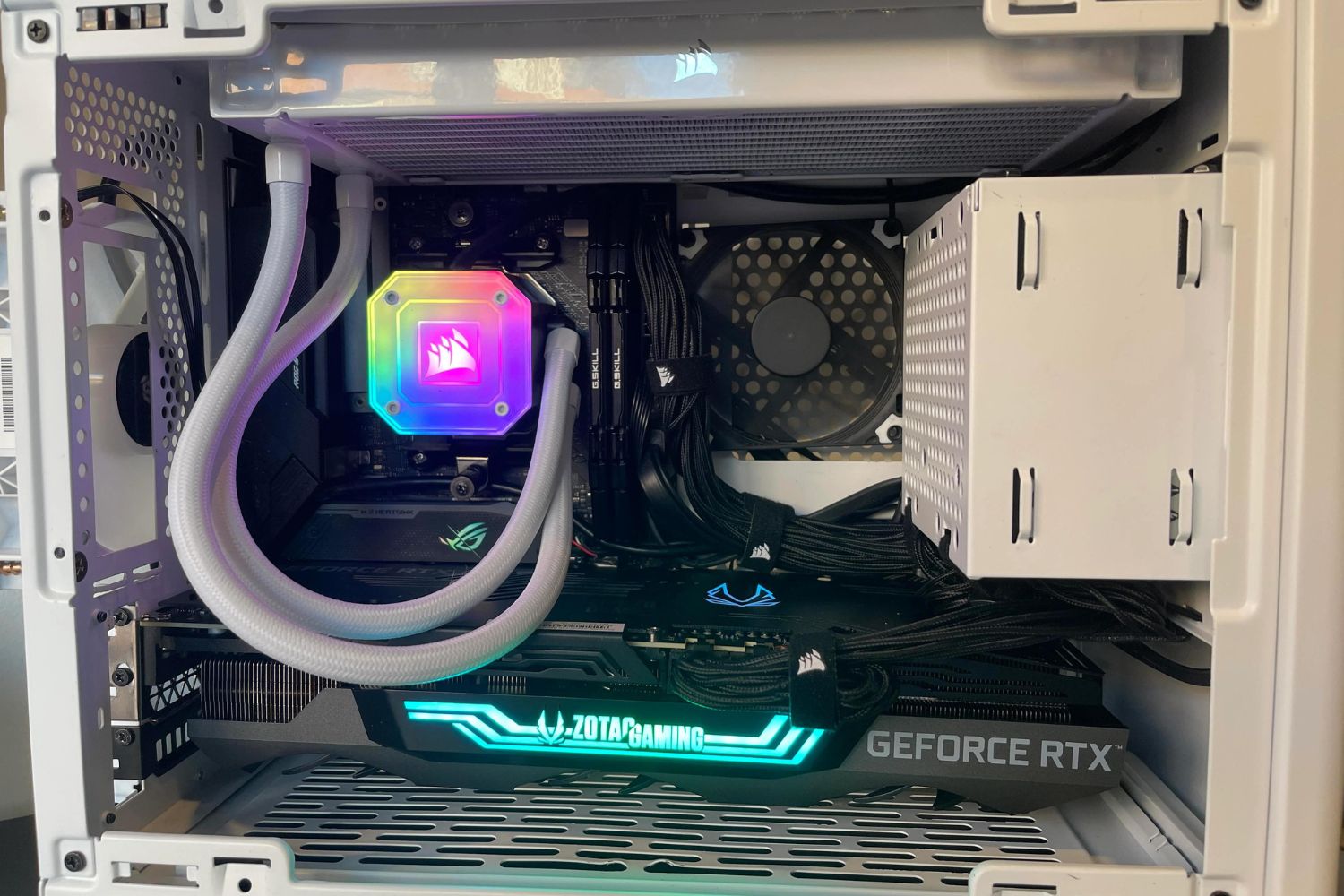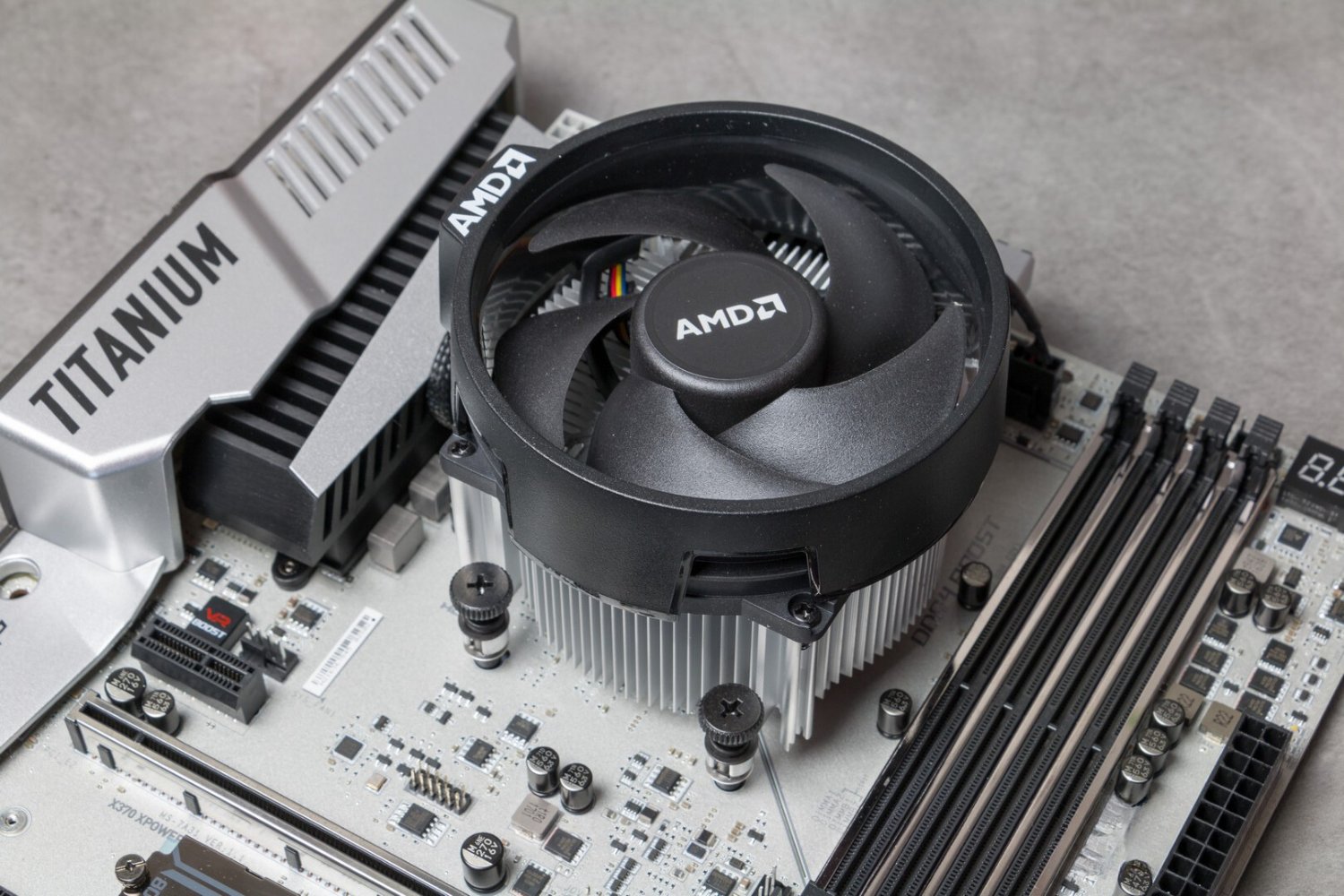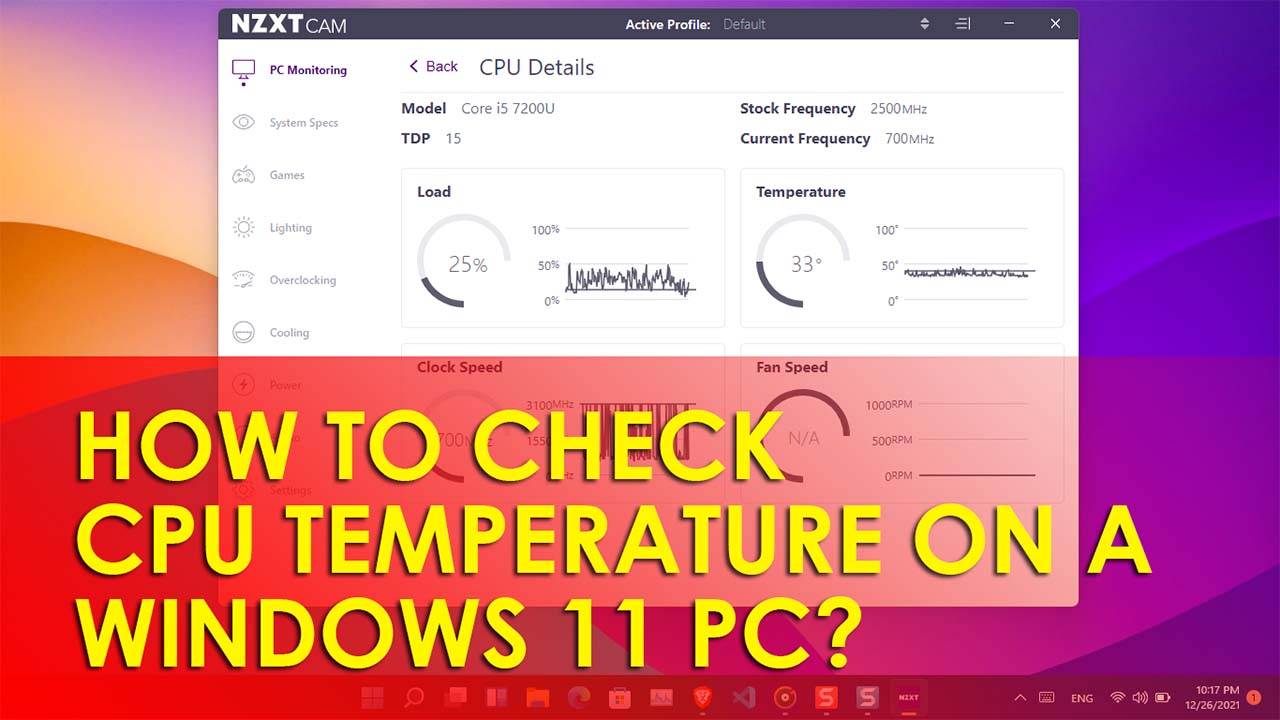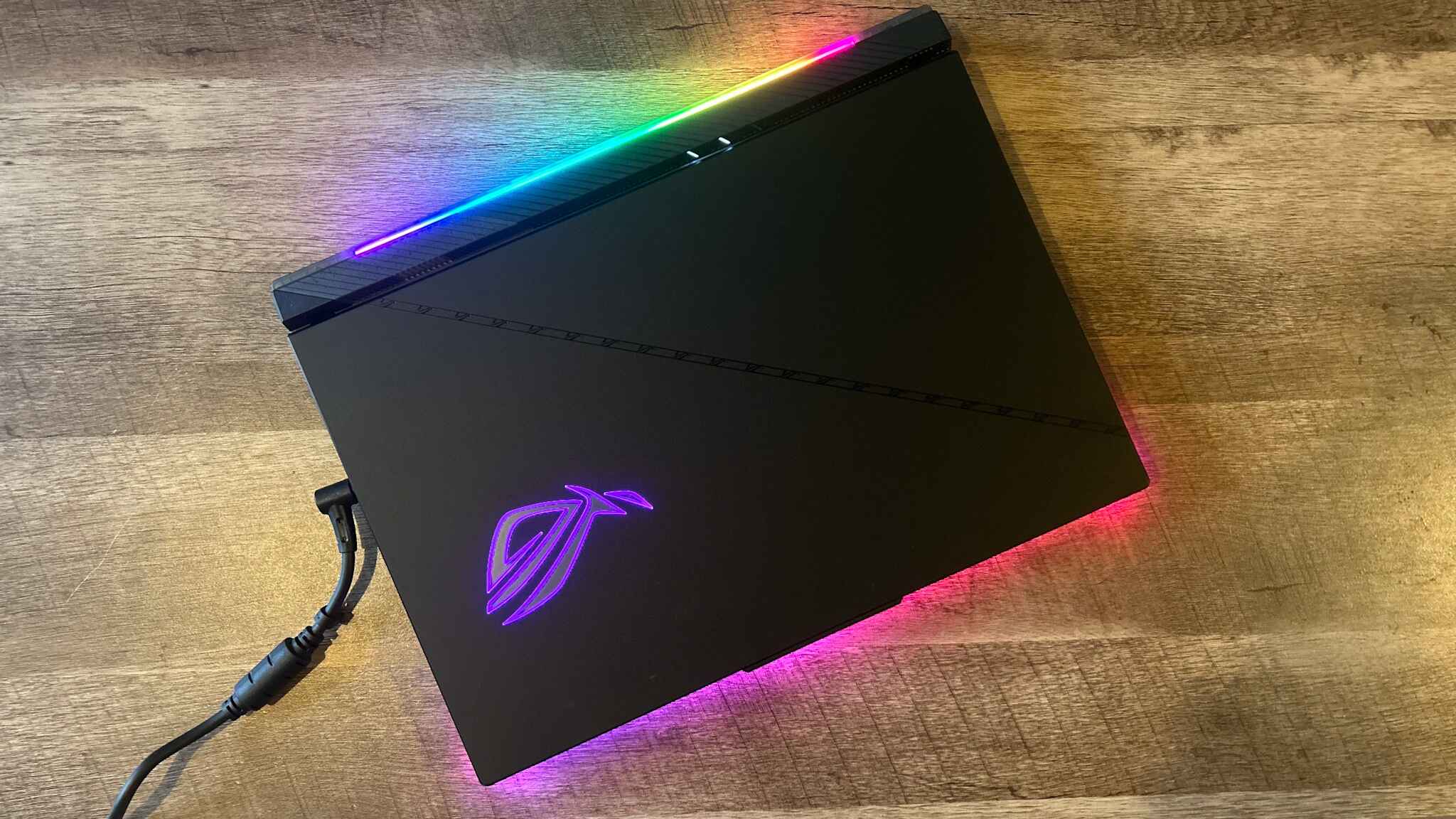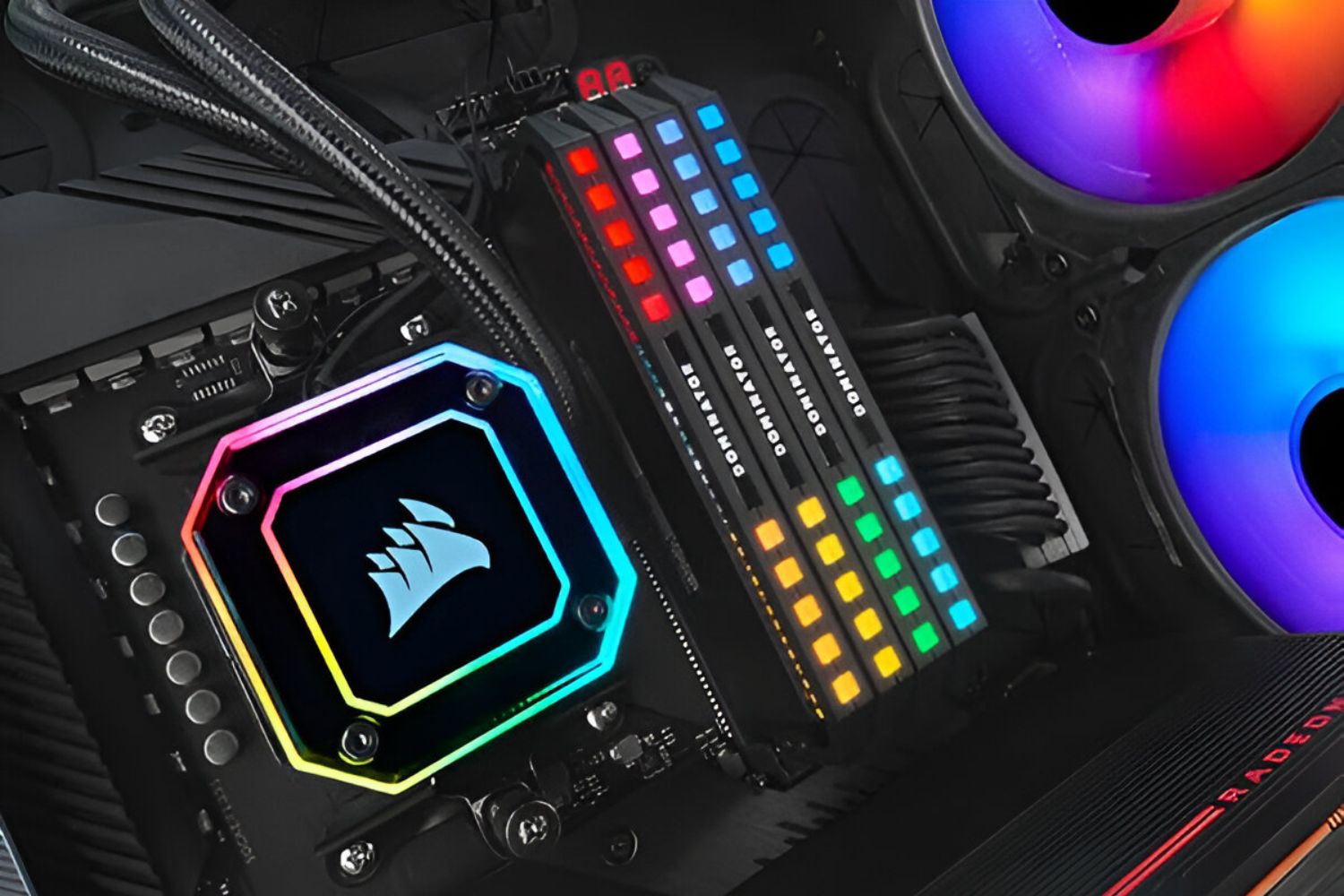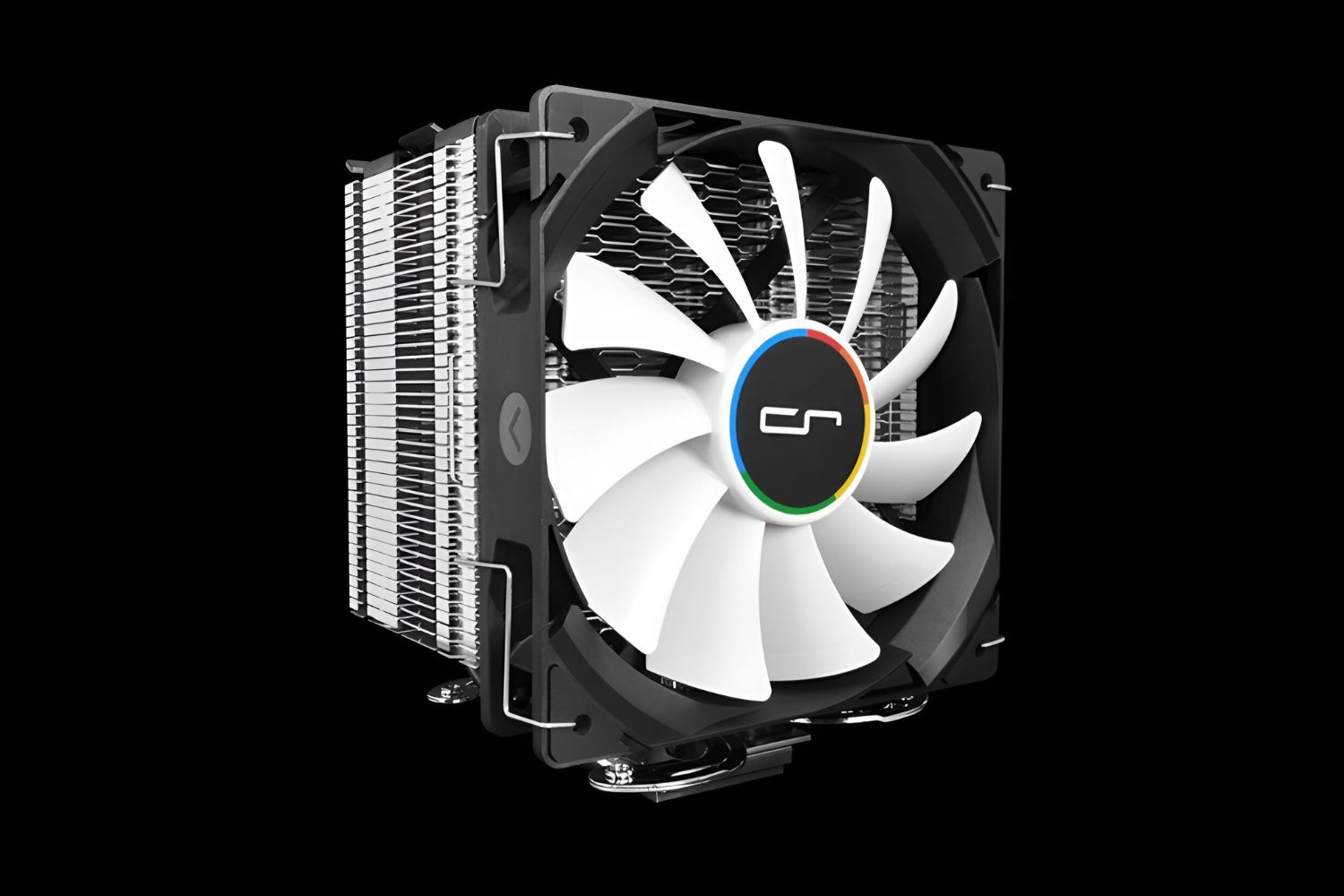Introduction
Choosing the right central processing unit (CPU) for your computer setup is crucial for optimal performance. With a wide range of options available in the market, it can be overwhelming to determine which CPU is the best fit for your needs. Whether you are building a gaming PC, a workstation for video editing, or simply upgrading your existing system, understanding the basics of CPUs and considering various factors can help you make an informed decision. In this article, we will explore the key considerations to keep in mind when picking a CPU.
The CPU is often referred to as the “brain” of the computer since it carries out the majority of the system’s calculations. It is responsible for executing instructions, performing arithmetic calculations, and managing data flow between other hardware components. The performance of your computer largely relies on the capabilities and specifications of the CPU.
When selecting a CPU, it’s important to assess your specific needs. Are you a gamer looking for a processor that can handle intensive graphics and deliver a seamless gaming experience? Or are you a professional who requires a CPU that excels in multitasking and resource-intensive tasks such as video editing or 3D rendering? Understanding your usage patterns and the requirements of the software and applications you use will help you determine the ideal CPU for your purposes.
In addition to performance considerations, you also need to ensure that the CPU is compatible with your existing hardware. Factors such as the socket type, motherboard chipset, and power requirements should be taken into account. Moreover, budget plays a significant role in your decision-making process. CPUs come in various price ranges, and striking the right balance between performance and cost is essential.
To make an informed decision, it’s advisable to compare different CPUs based on factors such as clock speed, number of cores, cache size, and power consumption. Analyzing benchmarks and reading reviews can provide valuable insights into the real-world performance and overall reliability of a CPU.
By thoroughly understanding the basics of CPUs, considering your specific needs, evaluating compatibility factors, and factoring in your budget, you can confidently select a CPU that suits your requirements. In the following sections, we will delve deeper into each of these aspects to guide you towards making the right choice.
Understanding CPU Basics
The central processing unit (CPU) is the core component of a computer system. It is responsible for executing instructions and performing calculations that drive the overall functionality of the computer. To understand how CPUs work, let’s explore some fundamental concepts.
At the heart of a CPU is the processor core. A processor core is an independent processing unit within the CPU that can execute instructions. Modern CPUs can have multiple cores, allowing them to handle multiple tasks simultaneously, improving overall performance. These cores can be categorized into two types: physical cores and virtual cores. Physical cores are actual physical processing units, while virtual cores are created through a technology called hyper-threading, which allows each physical core to behave like two logical cores.
Clock speed is another essential factor in CPU performance. It refers to the rate at which the CPU can execute instructions. Clock speed is measured in gigahertz (GHz), with a higher clock speed indicating a faster CPU. However, it’s important to remember that clock speed alone doesn’t determine the overall performance of a CPU. Other factors such as the number of cores, cache size, and architecture also play a significant role.
The cache is a small, high-speed memory located on the CPU itself. It acts as a buffer between the CPU and the main memory, storing frequently accessed data to accelerate data retrieval and improve overall performance. CPUs with larger cache sizes can handle data more efficiently, resulting in better performance.
CPU architecture refers to the design and organization of the CPU. Different CPU architectures offer varying levels of performance and efficiency. Common CPU architectures include x86, ARM, and PowerPC, each designed for specific applications and systems.
Power consumption is another crucial aspect to consider when choosing a CPU. CPUs with higher clock speeds and more cores tend to consume more power. The thermal design power (TDP) rating of a CPU specifies the amount of power it requires to operate within normal parameters. It is essential to consider your computer’s power supply and cooling capabilities when selecting a CPU to ensure proper operation and prevent overheating.
Understanding these CPU basics will help you assess and compare different CPU models effectively. Keep in mind that CPU performance is not solely determined by a single factor like clock speed, but rather a combination of factors such as core count, cache size, architecture, and power consumption. By considering these basics, you can make an informed decision when choosing the right CPU for your needs.
Determining Your CPU Needs
Determining your specific CPU needs is a crucial step in finding the perfect processor for your computer setup. Whether you are building a gaming PC, a workstation for professional tasks, or simply upgrading your existing system, understanding your usage requirements is key. Let’s explore some factors to consider when determining your CPU needs.
The first consideration is the type of tasks you will be performing. If you’re a gamer, you’ll want a CPU that can handle the demands of gaming, including high-resolution graphics and smooth gameplay. Look for CPUs with higher clock speeds, multiple cores, and strong single-threaded performance.
For professionals in fields such as video editing, graphic design, or 3D rendering, a CPU with a high number of cores and a large cache size is essential. These tasks benefit from parallel processing, so a CPU with multiple cores will provide the necessary power to handle complex and resource-intensive applications.
If your computer usage involves general multitasking, such as running multiple applications simultaneously or working with virtual machines, a CPU with a good balance of clock speed and core count is recommended. This will ensure smooth multitasking performance without sacrificing overall speed.
Consider the software and applications you use regularly. Some programs require specific CPU architectures or have recommended minimum specifications. Make sure to check the system requirements of these applications to ensure compatibility and optimal performance.
Future-proofing is another important aspect to consider. If you plan to keep your computer for several years, consider getting a CPU with ample performance headroom. This will ensure that your computer remains capable of handling new software releases and emerging technologies without needing an immediate upgrade.
Budget is also a determining factor in your CPU needs. CPUs come in a wide range of price points, so it’s essential to strike a balance between performance and cost. Assess your requirements and allocate a budget accordingly, ensuring that you get the best value for your money.
By carefully considering your specific tasks, the software you use, future needs, and budget, you can determine your CPU needs more effectively. Remember that a well-matched CPU will provide optimized performance for your particular usage patterns, allowing you to get the most out of your computer system.
Considerations for CPU Performance
When choosing a CPU, it’s important to consider various factors that contribute to its overall performance. Understanding these considerations will help you select a CPU that meets your specific performance requirements. Let’s explore some key factors to keep in mind.
Clock speed plays a significant role in CPU performance. It refers to the number of calculations a CPU can perform per second, measured in gigahertz (GHz). A higher clock speed generally indicates faster processing power. However, it’s important to note that clock speed alone doesn’t determine the overall performance of a CPU. Other factors such as the number of cores and the efficiency of the CPU architecture also contribute to its performance.
The number of CPU cores is crucial for multitasking and parallel processing. CPUs with multiple cores can handle multiple tasks simultaneously, resulting in improved performance and responsiveness. For tasks that can effectively utilize multiple cores, such as video editing or 3D rendering, CPUs with higher core counts provide a significant performance boost.
Cache size is another important consideration for CPU performance. The cache is a small, high-speed memory located on the CPU chip. It stores frequently accessed data, allowing for faster retrieval and reducing the need to fetch data from the slower main memory. CPUs with larger cache sizes can handle data-intensive tasks more efficiently, resulting in improved performance.
The CPU architecture affects performance by determining how efficiently the CPU can execute instructions. Different CPU architectures are optimized for different types of workloads. For example, the x86 architecture is commonly used in consumer desktops and laptops, while ARM architecture is prevalent in mobile devices. Understanding the intended use of your CPU and the requirements of your software will help you choose an architecture that delivers the desired performance.
Thermal design power (TDP) is an important consideration, especially for systems with limited cooling capabilities. TDP represents the amount of power a CPU consumes and the amount of heat it generates under standard operating conditions. CPUs with higher TDP ratings generally require more robust cooling solutions and can impact overall system noise levels.
It’s essential to consider your specific usage requirements and prioritize the factors that are most important to you. If you primarily use your computer for gaming, a CPU with a higher clock speed and strong single-threaded performance will deliver smoother gameplay. On the other hand, professionals working with resource-intensive tasks may benefit from CPUs with more cores and larger cache sizes for improved multitasking and rendering performance.
By considering a combination of clock speed, core count, cache size, architecture, and TDP, you can choose a CPU that offers the best performance for your specific needs. Remember, it’s important to strike a balance between performance and cost, ensuring that the CPU you choose aligns with your budget while meeting your performance expectations.
Factors Affecting CPU Compatibility
When selecting a CPU for your computer setup, it’s important to consider several factors that can affect its compatibility with your existing hardware. Ensuring that your CPU is compatible with other components of your system is crucial to prevent any issues or incompatibilities. Let’s explore some key factors that can affect CPU compatibility.
The first factor to consider is the socket type. The CPU socket is a physical interface on the motherboard that houses the CPU. Different CPUs use different socket types, and it’s essential to choose a CPU that matches the socket type of your motherboard. The socket compatibility is usually indicated in the specifications of the CPU and the motherboard.
The motherboard chipset is another important consideration. The chipset manages the communication between the CPU, memory, storage, and other components. Different CPUs are designed to work with specific chipsets, so it’s important to ensure that the CPU you choose is compatible with the chipset of your motherboard.
Power requirements are essential to consider when selecting a CPU. CPUs have specific power requirements, often measured in watts. It’s crucial to check the power supply unit (PSU) of your computer to ensure that it can provide sufficient power to the CPU. Inadequate power supply can lead to system instability or even damage to the components.
Another factor to consider is the cooling solution. CPUs generate heat during operation, and it’s important to have an adequate cooling solution to keep the CPU within safe temperature limits. Different CPUs have different thermal requirements, and it’s important to ensure that your cooling solution is capable of handling the thermal output of the CPU you choose.
It’s also important to consider the RAM compatibility. Different CPUs have specific memory support, including the type of RAM and the maximum capacity. Ensure that the CPU you choose is compatible with your existing RAM modules or allows you to install the desired RAM configuration.
Lastly, consider the form factor of your computer case. Some CPUs may be physically larger or have different mounting mechanisms that may not fit in certain computer cases. Make sure to check the specifications and dimensions of the CPU to ensure that it can be properly installed in your computer case.
By considering factors such as socket type, motherboard chipset compatibility, power requirements, cooling solution, RAM compatibility, and form factor, you can ensure that the CPU you choose is compatible with your existing hardware. Checking the specifications and consulting the documentation of your motherboard and CPU can provide valuable information to ensure a smooth and trouble-free installation.
Budget Considerations
When selecting a CPU, budget is an important factor to consider. CPUs come in a wide range of price points, and finding the right balance between performance and cost is crucial. Here are some budget considerations to help you make an informed decision.
First, define your budget range. Determine the maximum amount you are willing to spend on a CPU. By setting a budget, you can narrow down your options and focus on CPUs within your price range.
Consider your specific needs and usage patterns. Analyze the types of tasks you will be performing and the performance requirements of the applications and software you use. This will help you determine the level of CPU performance you need.
Since CPUs can significantly vary in price based on their specifications, consider which features are essential for your needs and which ones you can compromise on. For example, if you primarily use your computer for gaming, you may prioritize higher clock speeds and strong single-threaded performance. On the other hand, if you are a professional working with resource-intensive applications, you may prioritize higher core counts and larger cache sizes.
Research and compare different CPU models in your budget range. Look for reviews and benchmarks to get an idea of their performance and reliability. Consider the value that each CPU offers in terms of its features, performance, and price. Sometimes, a slightly lower-priced CPU may provide similar performance to a higher-priced one, making it a better value for your budget.
Consider future upgradability. If you anticipate the need for future upgrades, it may be worth investing a little more upfront in a CPU that offers better performance headroom. This allows you to extend the lifespan of your system without requiring a complete overhaul in the future.
Another budget consideration is the cost of the entire system. Keep in mind that the CPU is just one component of your computer setup. Allocating a portion of your budget for other components such as RAM, storage, graphics card, and power supply is important to ensure a well-rounded system.
Furthermore, consider the warranty and support offered by the CPU manufacturer. A longer warranty period and reliable customer support can provide peace of mind, knowing that you are protected against any potential issues.
By assessing your budget range, understanding your needs, comparing options, considering future upgradability, and factoring in the overall system cost, you can make an informed decision on a CPU that offers the best performance-to-cost ratio within your budget constraints. Remember, it’s important to strike a balance between your budget and the performance you require, ensuring that you get the most value out of your investment.
Comparing CPUs
When selecting a CPU, it’s crucial to compare different models to find the one that best suits your needs. With the wide range of options available, comparing CPUs based on various factors will help you make an informed decision. Here are some key factors to consider when comparing CPUs.
Clock speed is an important factor that directly affects the overall performance of a CPU. Higher clock speeds generally result in faster processing power. However, it’s essential to remember that clock speed alone is not the sole indicator of performance. Other factors, such as the number of cores and cache size, also contribute to the overall performance.
The number of CPU cores is significant, as it determines the CPU’s ability to handle multitasking and parallel processing. CPUs with more cores can handle multiple tasks simultaneously, resulting in improved performance and responsiveness. However, not all applications can effectively utilize multiple cores, so it’s essential to consider your specific usage patterns and the software you regularly use.
Cache plays a role in CPU performance, as it acts as a high-speed memory on the CPU chip, storing frequently accessed data for quicker retrieval. CPUs with larger cache sizes can handle data-intensive tasks more efficiently, leading to improved performance.
Architecture is another factor to consider when comparing CPUs. Different CPU architectures, such as x86, ARM, and PowerPC, offer varying levels of performance and efficiency. Understanding the intended use of your CPU and the requirements of your software will help you choose an architecture that delivers the desired performance.
Power consumption is an important consideration, as it affects both the performance and the energy efficiency of a CPU. CPUs with lower power consumption tend to generate less heat and require less cooling. This can result in quieter operation and longer battery life for laptops.
When comparing CPUs, it’s also important to consider price-to-performance ratio. Assessing the value that each CPU offers in terms of its performance, features, and price will help you make an informed decision on the best value within your budget.
Benchmarks and real-world performance tests can provide valuable insights into the actual performance of different CPUs. Review independent benchmark results and user reviews to get a better understanding of their performance in real-world scenarios.
Lastly, consider factors such as warranty, customer support, and brand reputation when comparing CPUs. A longer warranty and reliable customer support can provide assurance and peace of mind, while reputable brands often have a track record of producing quality and reliable CPUs.
By comparing CPUs based on factors such as clock speed, core count, cache size, architecture, power consumption, price-to-performance ratio, benchmarks, warranty, and brand reputation, you can make a well-informed decision on the CPU that best meets your needs and budget constraints. Remember, it’s important to strike a balance between performance, features, and affordability to ensure the best value for your investment.
Making the Final Decision
After considering all the factors and comparing different CPUs, it’s time to make the final decision on which CPU to choose for your computer setup. Making an informed decision involves weighing the pros and cons of each option and aligning them with your specific needs and budget. Here are some key factors to consider when making the final decision.
Evaluate your usage requirements and prioritize the performance factors that are most important to you. Consider the types of tasks you will be performing and the software you will be using. If you are primarily a gamer, focus on CPUs with higher clock speeds and strong single-threaded performance. For professionals working with resource-intensive applications, prioritize CPUs with higher core counts and larger cache sizes.
Consider your budget and aim to strike a balance between performance and cost. Refer back to your defined budget range and analyze the value that each CPU offers in terms of its features and price. Don’t just focus on the most expensive CPU in the market but rather look for the one that provides the best value within your budget.
Take into account compatibility with your existing hardware. Ensure that the CPU you choose is compatible with your motherboard’s socket type and chipset. Check for any power requirements, cooling considerations, and RAM compatibility to avoid any issues during installation.
Review benchmarks, performance tests, and user reviews to gain real-world insights into the performance and reliability of the CPUs you are considering. This information can provide valuable feedback on how each CPU performs under various workloads.
Consider the warranty and customer support provided by the CPU manufacturer. It’s important to have reliable customer support in case you encounter any issues with the CPU, and a longer warranty period can provide peace of mind and protection against potential defects.
If possible, consult with experts or seek advice from trusted sources to gather additional insights and recommendations. They may have valuable experience and knowledge that could further inform your decision.
Ultimately, the final decision should be based on a careful evaluation of your needs, budget, compatibility, performance considerations, warranty and support, and external advice. By taking all these factors into account, you can select the CPU that best aligns with your requirements and offers the best value for your investment.
Conclusion
Choosing the right CPU for your computer setup is essential for optimal performance. By understanding CPU basics, determining your specific needs, considering performance factors, evaluating compatibility, keeping budget considerations in mind, comparing different models, and making a well-informed decision, you can select a CPU that meets your requirements and offers the best value for your investment.
Remember that CPU performance is not solely determined by a single factor, such as clock speed or number of cores, but rather a combination of various factors. Consider your usage patterns, prioritize the performance factors that are most important to you, and align them with your budget. Thoroughly research and compare different CPUs based on their specifications, benchmarks, and real-world performance to gain a deeper understanding of their capabilities.
Ensure compatibility with your existing hardware, including the motherboard socket type, chipset, power requirements, cooling solution, and RAM compatibility. Take into account other factors such as warranty, customer support, and brand reputation for added assurance and peace of mind.
Making the final decision requires careful consideration of all the factors discussed. Assess your needs, evaluate the pros and cons of each option, and seek advice if needed. By doing so, you can confidently select a CPU that aligns with your requirements, provides optimal performance, and enhances your overall computer experience.
Remember that technology evolves rapidly, and CPUs are continually being upgraded and released. Stay informed about the latest developments in the CPU market to keep up with advancements and ensure that your chosen CPU remains viable for an extended period.
Ultimately, with the right CPU in place, you can unleash the full potential of your computer system and enjoy a seamless computing experience, whether you are a gamer, a professional, or a casual user.







